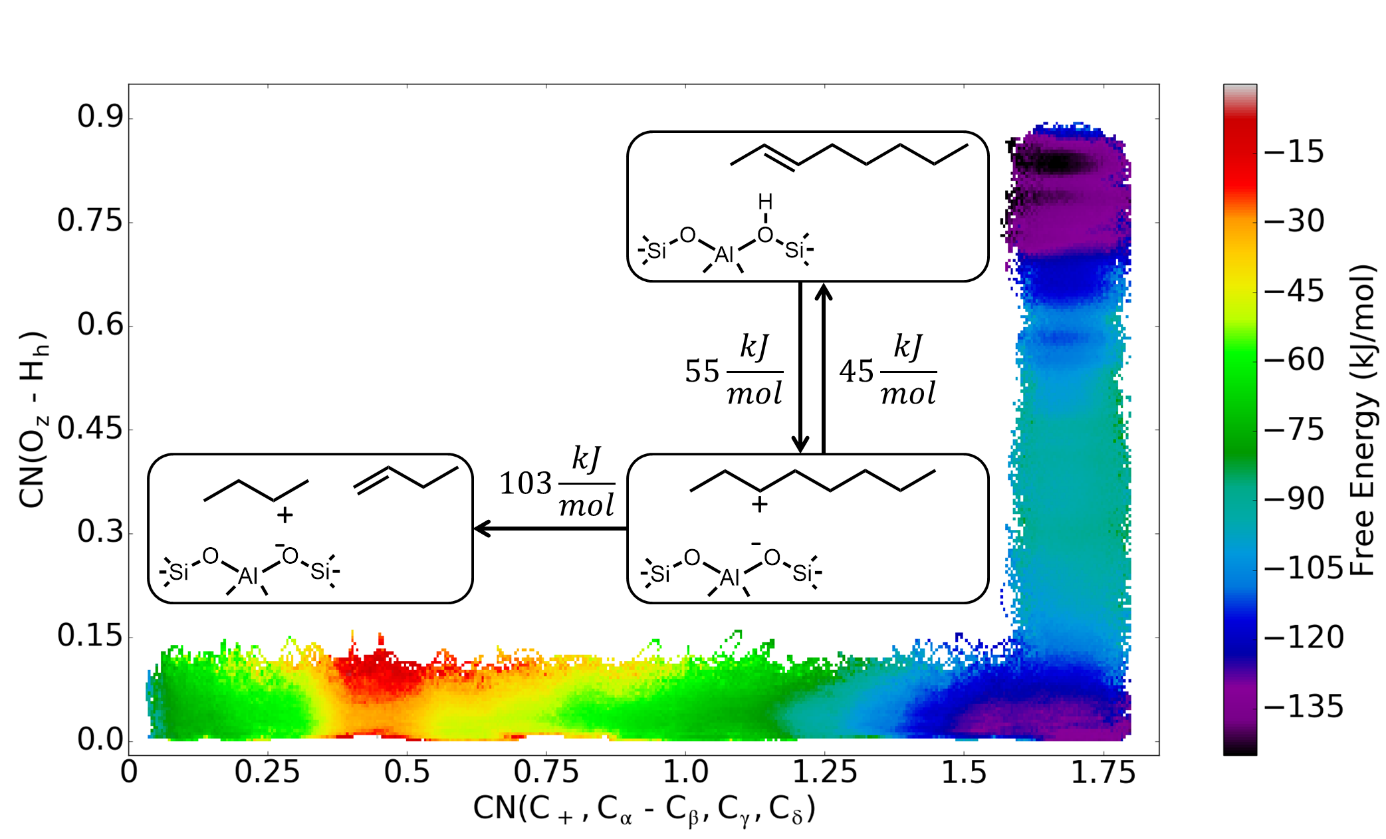Predicting Alkene Cracking Kinetics in Zeolite Catalysts with advanced Molecular Dynamics Techniques
Predicting Alkene Cracking Kinetics in Zeolite Catalysts with advanced Molecular Dynamics Techniques
Promotor(en): V. Van Speybroeck /18NANO01 / Nanoporous materialsZeolite-catalyzed hydrocarbon cracking is widely applied in chemical industry for the production of transportation fuels and light olefins. Cracking of less valuable C4-C10 alkene fractions is particularly relevant for both classical petrochemical processes, like fluid catalytic cracking (FCC), as well as for emerging alternatives, such as the methanol-to-olefins (MTO) process or biomass conversion. Furthermore, to meet the ever-increasing light olefin demand, alkene cracking is also applied in the on-purpose production of propene (and ethene). Given the importance of cracking reactions, a profound understanding of the mechanism and kinetics is required to select or design the optimal performing catalyst for industrial FCC and MTO plants.
Alkene cracking occurs through a complex reaction network consisting of a multitude of hydride transfer, alkylation, isomerization and β-scission (cracking) reactions in which carbenium ion intermediates are known to play an active role. However, due to the high reactivity of these intermediates, even at lower temperatures, detailed information on individual reaction steps can hardly be obtained from experiments. Ab initio simulations can provide a fundamental insight in the preferred reaction pathways at the molecular level. Nevertheless, accurately estimating the cracking kinetics theoretically remains a challenging topic. Since this process occurs at high temperature, the reactive intermediates have a large configurational freedom and side reactions can readily take place. Therefore, the conventional static molecular modeling techniques are no longer sufficient to properly capture all aspects of this complex process. Instead, molecular dynamics based simulations are necessary to predict the reaction kinetics.

Objectives
The goal of this master thesis is to accurately calculate kinetics for a selection of alkene cracking reactions with various molecular dynamics based techniques. First, collective variable based rare-event sampling methods (metadynamics, umbrella sampling,…) will be performed. However, the outcome of these simulations – a free energy surface as shown in the Figure – typically depend on the choice of a predefined collective variable. You will investigate how different collective variables may influence the underlying reaction kinetics and how to transform free energy profiles from one variable to another. In a second step, simulations without prior knowledge on the reaction coordinate will be performed. Such simulations rely on the principles of path sampling. In this case, no free energy surface but a kinetic coefficient is obtained immediately. A thorough comparison of the different techniques can also give an answer to the question whether present state-of-the-art techniques are able to accurately predict the cracking kinetics. Finally, you will use the obtained knowledge and insights to investigate the influence of reaction conditions, zeolite acidity and alkene feed on the cracking kinetics.
The Center for Molecular Modeling has ample experience in modeling of zeolite catalysis with advanced simulation techniques. The student will be actively coached to get acquainted with the multitude of available techniques to tackle the proposed problem. The proposed topic is challenging and requires technical skills, creativity and chemical insight. The CMM will provide the necessary computational resources for studying this complex system.
- Study programmeMaster of Science in Chemical Engineering [EMCHEM]KeywordsZeolites, Heterogeneous Catalysis, Chemical kinetics, Computational applicationsRecommended coursesMoleculaire modellering van industriële processen, Simulations and Modeling for the Nanoscale

